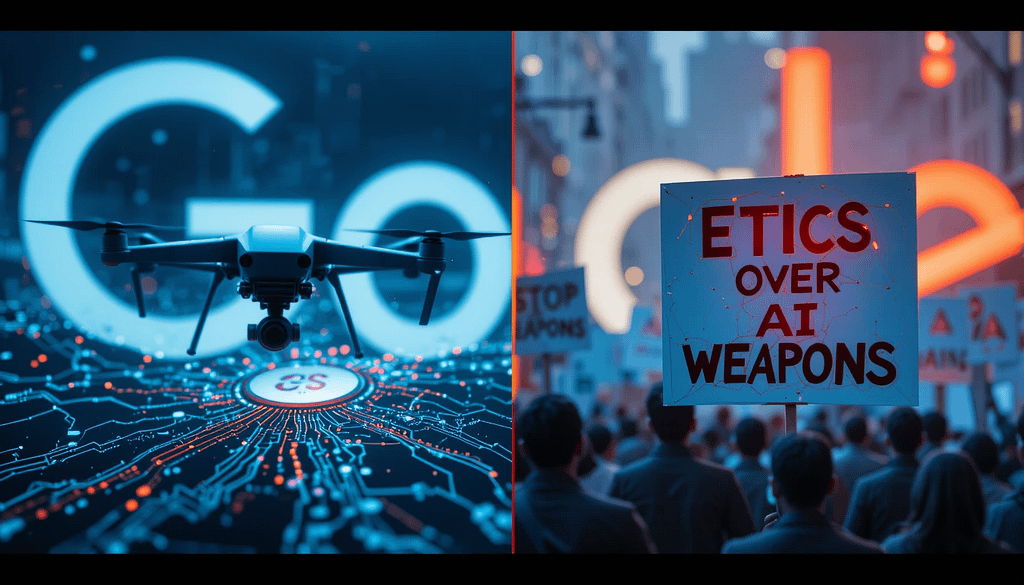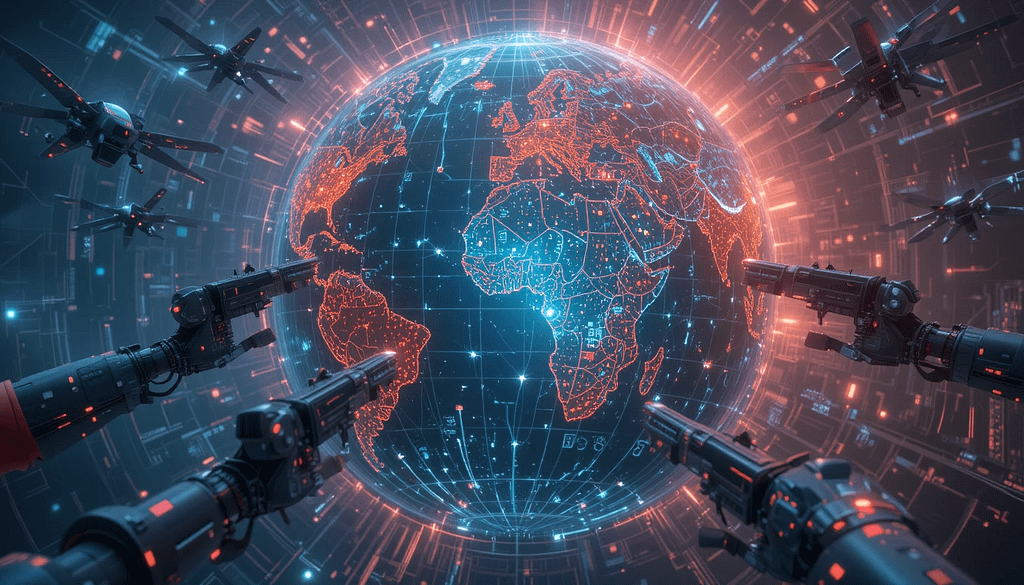Back in 2018, Google faced massive employee protests over its involvement in Project Maven, a Pentagon initiative that used AI to analyze drone footage. The backlash led the company to adopt strict AI principles, including a vow to avoid AI applications in weapons or surveillance that violate human rights norms 1911.
Fast-forward to 2025: Google has erased those red lines. The updated AI Principles now focus on “benefits outweighing risks” and “responsible development” without explicitly banning military or surveillance uses 3713. Gone is the section titled “AI applications we will not pursue”—a clause that once reassured critics Google wouldn’t cross ethical boundaries.
Key Changes in Google’s AI Playbook
Here’s what’s driving the shift:
National Security Over Idealism: Google’s leadership argues democracies must lead AI development to counter authoritarian regimes. Demis Hassabis (head of Google DeepMind) and James Manyika (SVP of research) stress collaboration with governments to “protect people and support national security” 1911.
Market Pressures: With rivals like Microsoft and Amazon already partnering with defense agencies, Google risks falling behind. Alphabet’s stock dip and rising competition from low-cost Chinese AI startups like DeepSeek add urgency 111.
Flexibility Over Rules: The new guidelines prioritize vague terms like “rigorous safeguards” and “human oversight” instead of hard prohibitions. Critics warn this leaves room for ethically murky projects 313.

Why the Backlash?
The update has reignited concerns from employees and ethicists:
Transparency Gap: Without clear bans, how will Google ensure its AI isn’t weaponized? Former Google researcher Margaret Mitchell called the removal “erasing years of ethical AI work” 13.
Surveillance Risks: The original principles barred AI for mass surveillance. Now, critics fear tools like facial recognition could be misused by governments 19.
Employee Dissent: In 2018, 3,000+ employees protested Project Maven. Will history repeat? Google hasn’t announced new military contracts yet, but the door is open 111.
The Bigger Picture: AI’s Geopolitical Arms Race
Google isn’t alone. Microsoft supplies AR combat goggles to the U.S. Army, Amazon powers Pentagon cloud systems, and OpenAI’s “Operator” tool automates military tasks 111. The U.S. government’s push for AI dominance, coupled with relaxed regulations under the Trump administration, has turned Silicon Valley into a battleground for defense contracts 911.
But as Stuart Russell, a leading AI ethicist, warns: “Autonomous weapons could destabilize global security.” Without international oversight, Google’s pivot might fuel an unchecked AI arms race 1.
What’s Next for Google—and Us?
Google insists it’ll uphold ethics through “human oversight” and safety benchmarks 26. Yet the absence of explicit bans leaves its intentions open to interpretation. Will the company double down on defense deals to outpace rivals? Or will employee activism force another U-turn?
For now, the message is clear: AI’s role in society is evolving, and so are the rules. Whether that’s a step forward or a dangerous misstep depends on who you ask.



